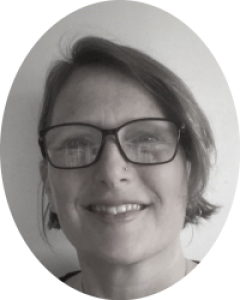I read in school with my child today and it was a fascinating – and surprising – experience.
I rarely read with my own child in school. I love to, but I think it builds a child’s confidence to read with different adults, and I read with my own child at home – so I try to select other readers.
Today, though, I noticed that my child hadn’t read, so I added him to my list and called him out as I would any other child. And he stood up and came with me, as would any other child. He told me very politely that he was starting a new book, and handed me his rather empty reading diary. (The one his mother had clearly forgotten to fill in since September.)
When I saw the blank reading diary, my first thought was, ‘I wonder if anyone reads with him at home?’
(Brain explosion.)
Damn.
We sat down and I read out the title; Mossop’s Last Chance by Michael Morpurgo – a Mudpuddle Farm book. We wondered what it might be about (a little warm-up exercise I do with all the children so that they get used to talking to me, and the read becomes a conversation rather than a test). Then we turned to the first page and he started reading.
Turns out, he can read. Of course, I knew this – but at the same time, I didn’t.
At home, we usually read storybooks at night, a time when we’re both tired, and also a time that competes with the TV and play with his brothers. Reading therefore depends on his mood, and is sometimes a second choice after I’ve banned the X-box. He still enjoys it, but since he’s tired and not always in the mood, his motivation to tackle more difficult reads is often flagging, and his reaction to any corrections can be grumpy and impatient. Therefore, my role at home is more about inspiration and I often read to him, making reading a source of comfort, relaxation, and mother-and-son time. We create lovely memories, but probably don’t really extend his reading skills.
At school, he’s awake, focused, and expecting to make an effort and to be taught.
The whole dynamic was subtly different. He was surprised and delighted to be reading with me. He tackled every word, and was happy to discuss the meanings. As he read, his voice was lower, quieter, and more consistent than usual; he was aware of the other people in the room. He looked at me with mild curiosity, because I was different, too. Not the sleepy mum in baggy old sweatpants sprawled out beside him, or bouncing around pretending to be a monkey, but now a tidy mother, sitting up straight, talking formally, with my hair brushed and my voice moderated.
I understand that he’s very aware of how people might see me; I can still joke, still pretend to be some of the characters, and still laugh – but not quite in the same way as I would at home.
While we both got to enjoy each other in a new light, the reading also became more technical and assessed.
At seven, he’s a free reader so we’re at the stage when we’re checking comprehension of the words and context, working on intonation and cadence, and looking at characterisation and narrative. I love this stage; it’s the point where I re-read the paragraph he’s just read, and we look for a broader context: how is the character feeling? Is this sad, funny, or what? What do we think might happen? Which words give us clues about what will happen next?
If Mossop was supposed to catch the rats and mice, do we imagine that Mossop actually does this?
At the end of the chapter, when I closed the book and praised his work, he seemed sorry that we’d finished, but accepted my praise with a smile and took his book and diary back to his bag, while I read with another child.
School is a place where we send our children, and in the comfort of our homes, cars and offices, it’s easy to imagine them behaving at school as they would at home. But they don’t. They carry their individuality with them, of course, but at school they are all “someone else’s child”, “one of many”, unrelated to the majority, expected to abide by a subtly different set of rules, and dressed in clothes that speak of school rather than home. Things are more and less exciting, more and less familiar, better and worse. They put on fronts and engage formal manners (or not). They present themselves to the world in a place where, hopefully, they still feel safe – but it’s not home.
Reading with your child in school is a privilege and joy that can show you a very different reader. You’re stepping into the “other half” of their world, and it’s a place where they can start to show you a bit more of who they plan to become.


Wow, this is fascinating. I am not a mother, but I am an aunt and a former teacher, and I, too, have noticed that children can be very focused in some settings and not so focused in other settings. I guess adults can be that way, too … Thanks for the interesting blog post! Liza P.S. I found you on Twitter. 🙂
LikeLike
Hi Liza, thanks, and yes, I think the difference can be seen with anyone from home – it’s the different setting and expectations. So fascinating to watch, complex little superstars!
LikeLike
I love that phrase, complex little superstars. 😉 Hey I sent you a DM on Twitter… check it out and let me know what you think… 🙂
LikeLike